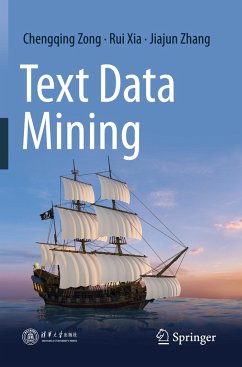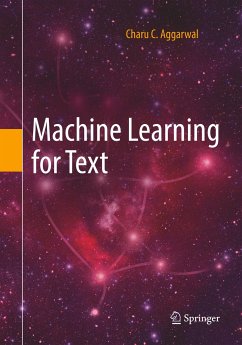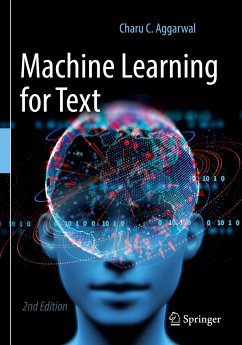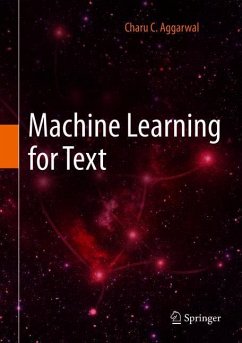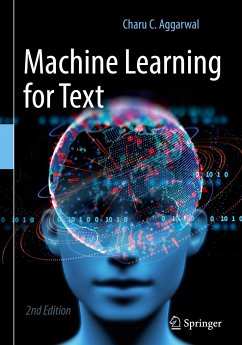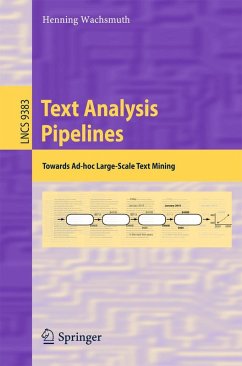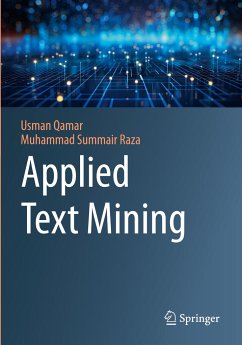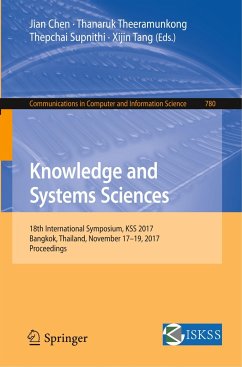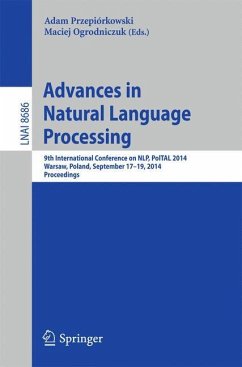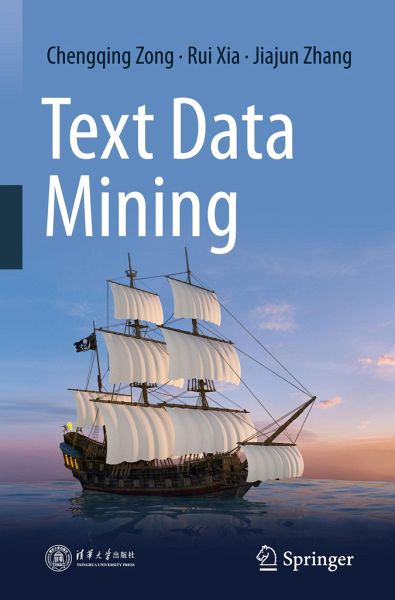
Text Data Mining
Versandkostenfrei!
Versandfertig in 6-10 Tagen
61,99 €
inkl. MwSt.
Weitere Ausgaben:

PAYBACK Punkte
31 °P sammeln!
This book discusses various aspects of text data mining. Unlike other books that focus on machine learning or databases, it approaches text data mining from a natural language processing (NLP) perspective.The book offers a detailed introduction to the fundamental theories and methods of text data mining, ranging from pre-processing (for both Chinese and English texts), text representation and feature selection, to text classification and text clustering. It also presents the predominant applications of text data mining, for example, topic modeling, sentiment analysis and opinion mining, topic ...
This book discusses various aspects of text data mining. Unlike other books that focus on machine learning or databases, it approaches text data mining from a natural language processing (NLP) perspective.
The book offers a detailed introduction to the fundamental theories and methods of text data mining, ranging from pre-processing (for both Chinese and English texts), text representation and feature selection, to text classification and text clustering. It also presents the predominant applications of text data mining, for example, topic modeling, sentiment analysis and opinion mining, topic detection and tracking, information extraction, and automatic text summarization. Bringing all the related concepts and algorithms together, it offers a comprehensive, authoritative and coherent overview.
Written by three leading experts, it is valuable both as a textbook and as a reference resource for students, researchers and practitioners interested in text data mining. It can also be used for classes on text data mining or NLP.
The book offers a detailed introduction to the fundamental theories and methods of text data mining, ranging from pre-processing (for both Chinese and English texts), text representation and feature selection, to text classification and text clustering. It also presents the predominant applications of text data mining, for example, topic modeling, sentiment analysis and opinion mining, topic detection and tracking, information extraction, and automatic text summarization. Bringing all the related concepts and algorithms together, it offers a comprehensive, authoritative and coherent overview.
Written by three leading experts, it is valuable both as a textbook and as a reference resource for students, researchers and practitioners interested in text data mining. It can also be used for classes on text data mining or NLP.



